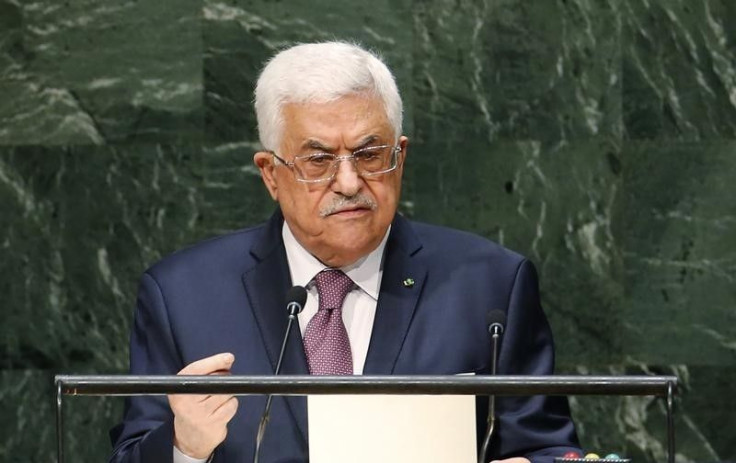Palestinian Resolution Demanding Peace, Statehood Fails At UN Security Council Vote

The U.N. Security Council defeated a Palestinian resolution Tuesday calling for a peace deal between Israel and Palestinian leaders within 12 months and Israel's withdrawal from Palestinian territories by late 2017. The resolution tabled by Jordan failed to secure the minimum nine votes required for passage in the U.N.’s most powerful body, according to the Associated Press.
Jordanian U.N. Ambassador Dina Kawar said this is not a dead end in the push to resolve the Israeli-Palestinian conflict. "The fact that this draft resolution was not adopted will not at all prevent us from proceeding to push the international community, specifically the United Nations, towards an effective involvement to achieving a resolution to this conflict,” Kawar, the Arab representative on the U.N. Security Council, told the AP.
The defeated resolution, which is an amended version of Jordan’s original Dec. 17 draft, asked to resolve the Palestinian-Israeli conflict within a year and to end Israeli occupation in the West Bank and East Jerusalem by late 2017. The updated resolution -- which drew eight supporting votes, two opposing votes and five abstentions -- also declared East Jerusalem as the Palestinian capital, according to the Washington Post.
The United States had voiced its opposition to the draft resolution this week prior to the vote. "This draft resolution is not something we would support," U.S. State Department Press Office Director Jeff Rathke said in a press briefing Monday. "We don't think it is constructive. We think it sets arbitrary deadlines. Further, we think the resolution fails to account for Israel's legitimate security needs. We don't believe this resolution advances the goals of a two-state solution."
Samantha Powers, the U.S. ambassador to the United Nations, told the AP a resolution must come through peace negotiations rather than a “staged confrontation.”
"We voted against this resolution not because we are comfortable with the status quo. We voted against it because ... peace must come from hard compromises that occur at the negotiating table,” Powers reportedly said after the vote on Tuesday.
Israeli-Palestinian peace talks on Palestinian statehood brokered by the United States fell apart in April, over Israel’s ongoing expansion of settlements in the occupied West Bank and East Jerusalem during the talks and Palestinian President Mahmoud Abbas’ reconciliation agreement with the militant Islamist group Hamas, which is deemed a terrorist organization by the United States and Israel.
Hamas urged the Palestinian leadership Monday to withdraw its draft resolution from the U.N. Security Council. "The draft resolution is unacceptable and aims to liquidate the Palestinian cause. It contains massive concessions," Hamas spokesman Sami Abu Zuhri said in a statement Sunday. "The resolution expresses the will of an influential group within the PLO and does not reflect the national desire of our people."
The Palestinians have sought recognition of statehood by seeking membership in the United Nations and other international organizations. Following the 1948 Palestine War, 85 percent of the Palestinian population who occupied what has now become Israel was forced to leave their homes. More than 2 million registered Palestinian refugees live in Jordan, according to the United Nations Relief and Works Agency.
© Copyright IBTimes 2025. All rights reserved.





















